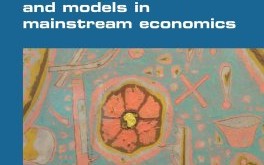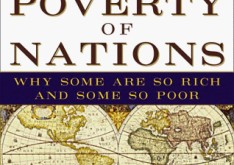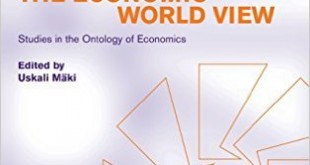Taking into account the subtle nature of the underlying differentiation of assumptions, whose subtlety is exponentially increased by the structural lack of transparency with regard to the question how to assign one’s assumptions to explanatory and auxiliary hypotheses, it is unsurprising to see interpretations according to both extremes within the whole of economic literature. For neoclassical theory as an intellectual construct such a state implies an enormously advantageous situation....
Read More »Wham! Bam! Mon chat ‘Splash’
[embedded content] Old love dies hard …
Read More »Robert Solow on Chicago economics
Robert Solow on Chicago economics Suppose someone sits down where you are sitting right now and announces to me that he is Napoleon Bonaparte. The last thing I want to do with him is to get involved in a technical discussion of cavalry tactics at the battle of Austerlitz. If I do that, I’m getting tacitly drawn into the game that he is Napoleon. Now, Bob Lucas and Tom Sargent like nothing better than to get drawn into technical discussions, because then you have tacitly gone along with...
Read More »My new book now available in paperback
My new book now available in paperback This collection of previously published and new papers is a major intervention in the on-going debate about the nature and future of economics. Instead of the present deductivist-formalist orientation of mainstream economics, Lars Syll advocates for the adoption of a more pluralist approach to economics, arguing for more realism and relevance with less insistence on mathematical modeling. This challenging and thought-provoking book will prove a...
Read More »Critical realism and scientific explanation
Critical realism and scientific explanation ‘Critical realism’ is very similar to the jargon-dense, literary ‘critical theory’ taught in literature departments. Noahpinion One of the most important tasks of social sciences is to explain the events, processes, and structures that take place and act in society. But the researcher cannot stop at this. As a consequence of the relations and connections that the researcher finds, a will and demand arise for critical reflection on the findings....
Read More »Woman is the nigger of the world
Woman is the nigger of the world För en tid sedan skrev Sara Mohammad — grundare av Glöm aldrig Pela och Fadime — i en debattartikel på SVT Opinion att hon idag med oro ser hur religiösa krafter flyttar fram sina positioner här i Sverige: Häromveckan gick Storsjöbadet i Österstund ut med att de börjar sälja burkinis, och flera badhus har börjat med skilda badtider för kvinnor och män. Vi är många som flytt från ett kulturellt och religiöst förtryck med krav på kontroll av kvinnors...
Read More »Bayes vs. Keynes on probability and belief in economic theory
Bayes vs. Keynes on probability and belief in economic theory An alternative possibility is to accept the consequences of the apparent fact that the central prediction of the Bayesian model in its descriptive capacity, that people’s choices are or are ‘as if’ they are informed by real-valued subjective probabilities, is, in general, false … According to Keynes’s decision theory it is rational to prefer to be guided by probabilities determined on the basis of greater evidential ‘weight’,...
Read More »California (personal)
[embedded content] Yes, indeed, looking out through my library windows in to The Magistrate’s Park, the sky is grey, rain keeps falling, and Spring seems to be far, far, away. Although it’s more than thirty years now since I was a student at the University of California, on a day like this, I sure wish I was there again …
Read More »Can an endless series reach its limit?
Can an endless series reach its limit? [embedded content] [embedded content]
Read More »Poupée de cire, poupée de son
Poupée de cire, poupée de son [embedded content] France Gall. Une fille-femme merveilleuse. Magnifique. [embedded content] ‘C’est comme toute l’histoire du peuple noir qui se balance entre l’amour et l’désespoir.’
Read More » Lars P. Syll
Lars P. Syll






